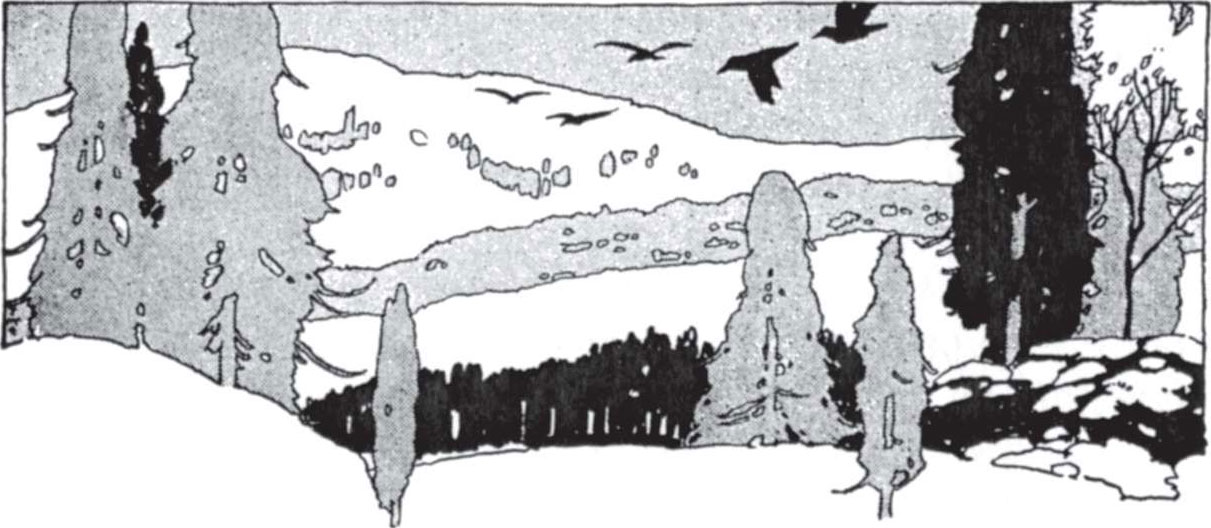






I come, I come! ye have called me long —
I come o’er the mountains with light and song!
Ye may trace my step o’er the wakening earth
By the winds which tell of the violet’s birth,
By the primrose-stars in the shadowy grass,
By the green leaves opening as I pass.
I have breathed on the South, and the chestnut flowers
By thousands have burst from the forest-bowers,
And the ancient graves and the fallen fanes
Are veiled with wreaths on Italian plains —
But it is not for me, in my hour of bloom,
To speak of the ruin or the tomb!
I have looked on the hills of the stormy North,
And the larch has hung all his tassels forth,
The fisher is out on the sunny sea,
And the reindeer bounds o’er the pastures free,
And the pine has a fringe of softer green,
And the moss looks bright where my foot hath been.
I have sent through the wood-paths a growing sigh,
And called out each voice of the deep-blue sky,
From the night-bird’s lay through the starry time,
In the groves of the soft Hesperian clime,
To the swan’s wild note by the Iceland lakes,
When the dark fir-branch into verdure breaks.
From the streams and founts I have loosed the chain,
They are sweeping on to the silvery main,
They are flashing down from the mountain brows,
They are flinging spray o’er the forest boughs,
They are bursting fresh from their sparry caves,
And the earth resounds with the joy of waves!
Come forth, O ye children of gladness! come!
Where the violets lie may be now your home.
Ye of the rose-lip and dew-bright eye
And the bounding footstep, to meet me, fly!
With the lyre, and the wreath, and the joyous lay,
Come forth to the sunshine—I may not stay.
( Felicia Hemans )
Felicia Hemans (1793-1835), an English poet, was born in Liverpool.She lived much of the time in North Wales. She began to write poetry when young, and in 1819 won a prize of £50 (about $250) offered for the best poem on “The Meeting of Wallace and Bruce on the Banks of the Carron.”She is best known for her short poems such as “Casablanca,” “The Voice of Spring,” and “The Landing of the Pilgrim Fathers.”
ancient : very old
clime : climate, weather
lyre : a stringed musical instrument
Answer the following questions.
1) Who is speaking in the poem?
2) How may the steps of spring be traced?
3) How does the wind tell that the violets are in bloom?
4) Why couldn’t the fishermen go out before spring came
5) What is the name of the night bird that sings through the “starry time”?
6) Which of the flowers and trees in the poem do you know